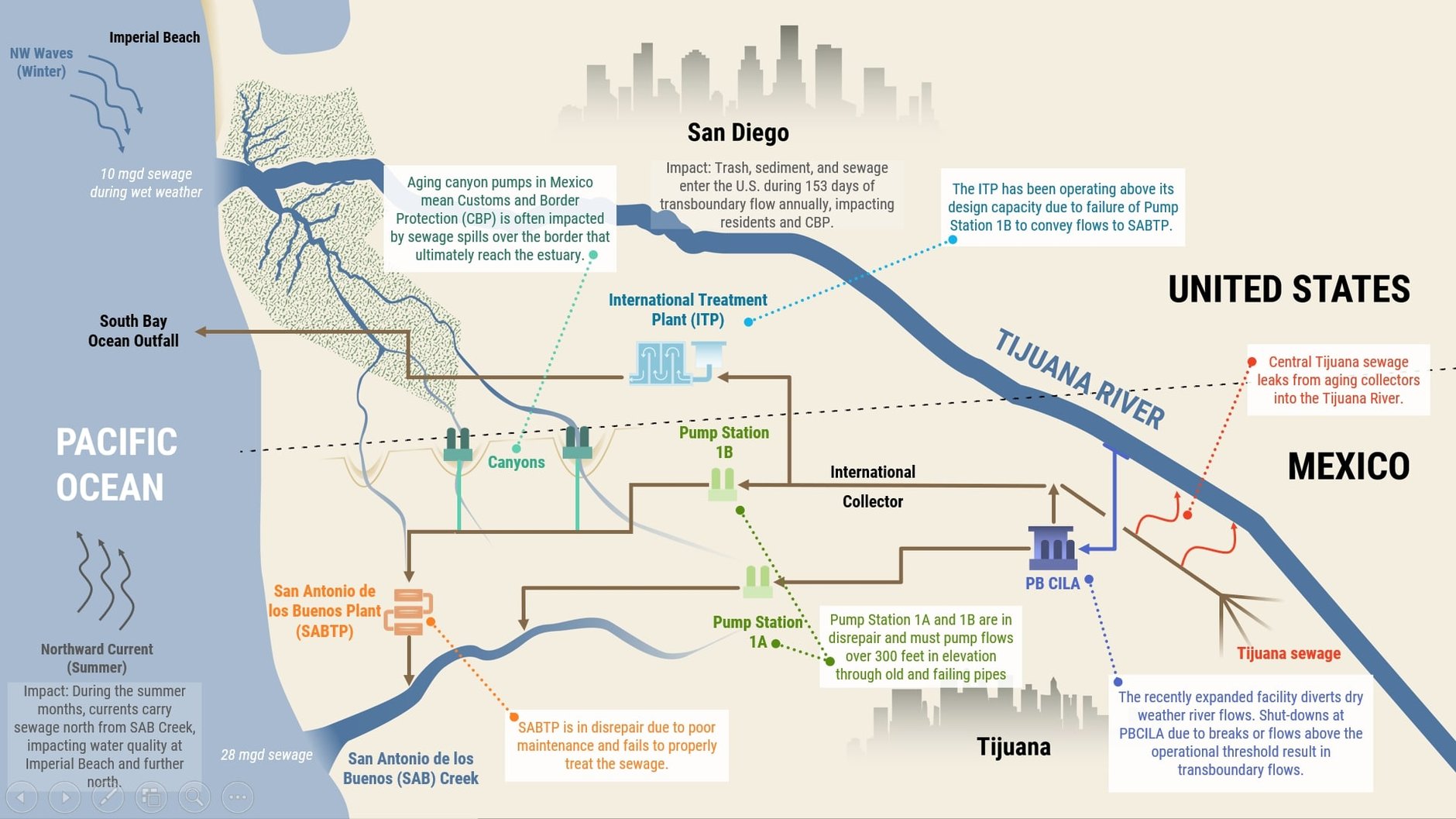California is taking significant strides to improve water quality along the U.S.-Mexico border, allocating $34 million for six projects targeting the New River and Tijuana River.
SAN DIEGO (CN) — Allocating $34 million, the State Water Resources Control Board has initiated six projects aimed at enhancing water quality in the New River and the Tijuana River along the U.S.-Mexico border.
Originating south of Mexicali, the New River traverses Calexico on the U.S. side before flowing through Imperial County to the Salton Sea. Meanwhile, the Tijuana River flows from Baja California into San Diego.
Both rivers suffer from severe pollution caused by sewage, garbage, industrial and agricultural waste, as well as other sediment and pollutants.
Joaquin Esquivel, chair of the state water board, emphasized the enduring threat posed by decades of degradation to the water quality in border watersheds, impacting human health, wildlife, and economies. He underscored the urgency of addressing these challenges exacerbated by extreme weather patterns in a changing climate. Esquivel stressed the significance of the projects in enhancing water quality for border communities, highlighting the importance of continued collaboration at local, state, federal, and international levels to safeguard water resources.
The funded projects encompass various initiatives such as installing a trash screen and a water pumping system in Calexico, aimed at treating wastewater from the Calexico Wastewater Treatment Plant and preventing erosion along the New River. San Diego County will undertake projects totaling over $4 million, including building sediment and trash control basins and conducting dredging in the Tijuana River Pilot Channel and Smuggler’s Gulch. Additionally, remediation efforts will target illegal dumping grounds along the Tijuana River, with funds allocated to restoring floodplains and habitats in the area.
Further initiatives include the construction of a floating trash boom system by the Rural Community Assistance Corporation for use during stormy seasons in the Tijuana River Channel. In Mexicali, efforts will focus on cleaning trash from the New River, replanting native vegetation, and restoring wetlands.
The Sonoran Institute will receive funding for the Fluyle Project, with aims to improve wetlands in Mexicali and initiate environmental education workshops. Meanwhile, Imperial County will receive funding to evaluate the feasibility of constructing a new wastewater treatment plant to address water pollution issues in the New River.
Despite the allocation of funds, concerns remain regarding the adequacy of resources allocated to address the significant pollution problems in the New River. Ryan Kelley, the District 4 representative on the Imperial County Board of Supervisors, expressed skepticism about the effectiveness of the funding, highlighting the urgent need for action to address the river’s pollution issues.
Kelley emphasized the urgency of addressing the New River’s pollution problems, underscoring the need for adequate funding and tangible actions to improve water quality and protect public health in the region.
